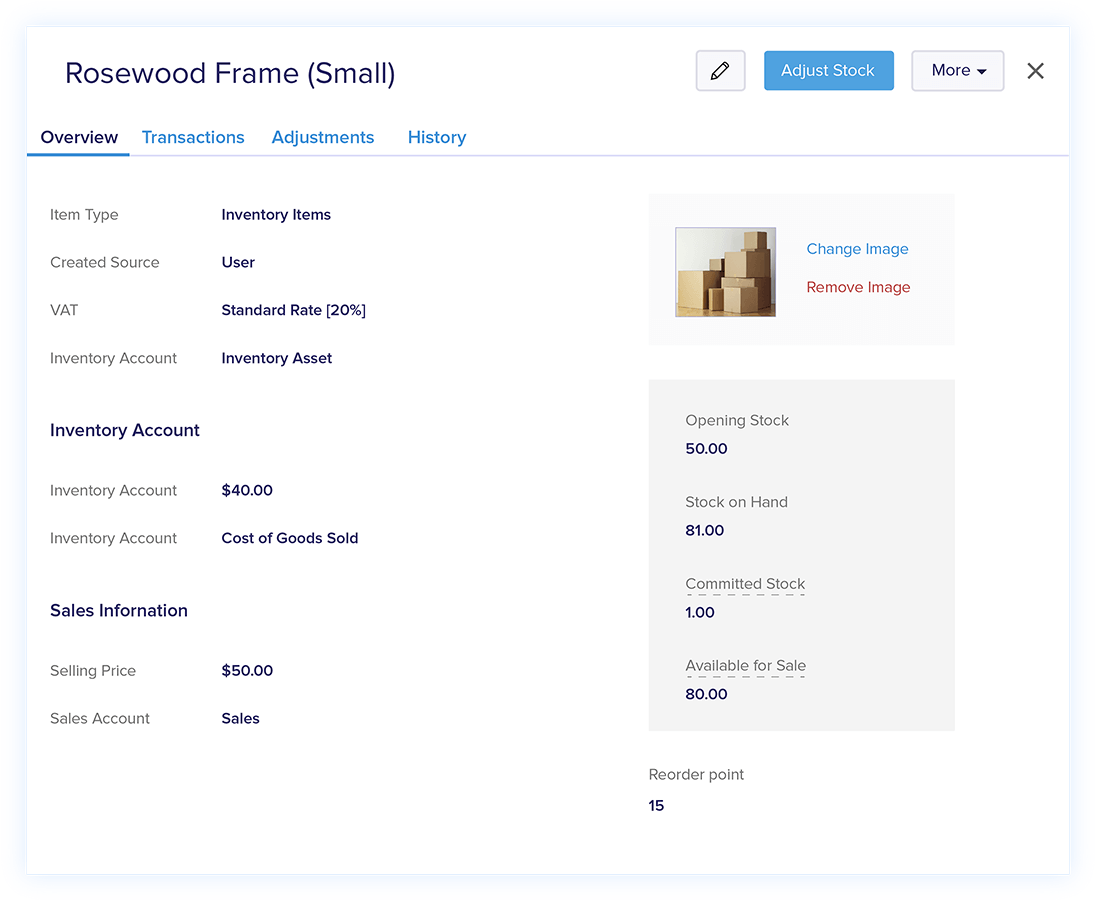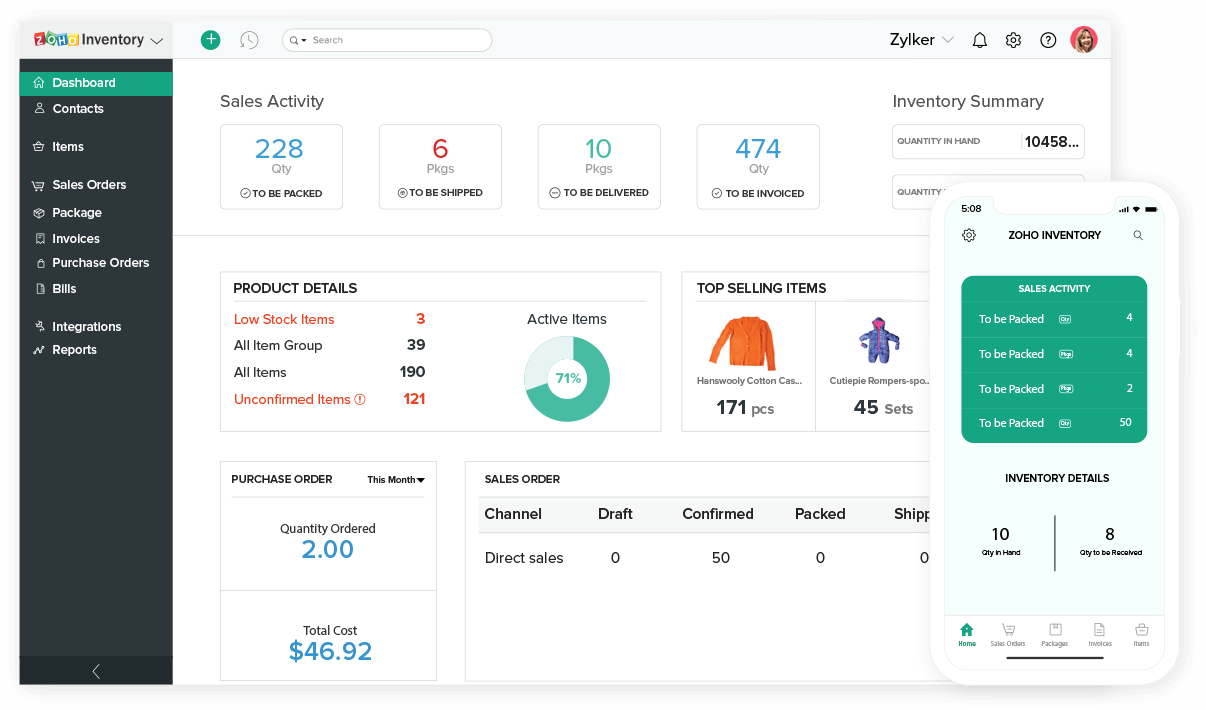Small business accounting inventory software revolutionizes the way small businesses manage their inventory, streamline their accounting processes, and elevate their operations to new heights. This comprehensive guide delves into the intricacies of this powerful tool, empowering you with the knowledge to make informed decisions and unlock the full potential of your business.
As a small business owner, you understand the critical role inventory management plays in your success. From tracking stock levels to generating invoices and reports, the right accounting inventory software can transform your operations, saving you time, money, and headaches.
Software Features and Functionality
Small business accounting inventory software offers a range of features designed to streamline inventory management and accounting processes. These features include:
Inventory Tracking
- Real-time tracking of inventory levels
- Automatic updates when items are added, sold, or adjusted
- Alerts for low stock levels and expiration dates
Invoicing
- Generation of professional invoices
- Tracking of customer orders and payments
- Integration with payment gateways
Reporting
- Detailed reports on inventory levels, sales, and profits
- Customizable reports to meet specific business needs
- Data visualization for easy analysis
Types of Inventory Software
There are various types of inventory software available, each with its own set of features and functionalities:
- Cloud-based inventory software: Accessible from any device with an internet connection, offering flexibility and remote access.
- On-premise inventory software: Installed on a local server, providing greater control over data and security.
- Perpetual inventory software: Tracks inventory in real-time, providing up-to-date information on stock levels.
- Periodic inventory software: Tracks inventory at specific intervals, typically monthly or quarterly, suitable for businesses with less frequent inventory turnover.
Benefits of Using Software

In today’s fast-paced business environment, managing inventory accurately and efficiently is crucial for small businesses. Accounting inventory software provides a comprehensive solution that streamlines inventory management, leading to improved accuracy, enhanced efficiency, and significant cost savings.
Small businesses that have embraced inventory software have experienced tangible benefits. Take the example of “XYZ Company,” a small hardware store that struggled with inventory discrepancies and inefficient tracking. By implementing accounting inventory software, they were able to reduce inventory errors by 50%, resulting in a substantial increase in profit margins.
Improved Accuracy
Manual inventory management is prone to errors, such as counting mistakes, misplacing items, or losing track of stock levels. Inventory software eliminates these human errors by automating inventory tracking and reconciliation. Real-time updates and barcode scanning ensure accuracy, providing businesses with a clear and up-to-date view of their inventory.
Enhanced Efficiency, Small business accounting inventory software
Inventory software streamlines inventory processes, saving businesses time and effort. Automated tasks, such as stock level monitoring, purchase order generation, and reorder point calculation, free up valuable time for other business-critical tasks. Additionally, the software provides easy access to inventory data, enabling quick and informed decision-making.
Cost Savings
Accurate inventory management can lead to significant cost savings for small businesses. By preventing overstocking and minimizing stockouts, businesses can optimize their inventory levels and reduce carrying costs. Additionally, the software helps identify slow-moving or obsolete items, allowing businesses to clear out excess inventory and recover valuable storage space.
Selection and Implementation
Choosing and implementing the right accounting inventory software is crucial for small businesses. The software should align with your specific requirements, ensuring efficient inventory management and accurate financial reporting.
Here are some key considerations for selecting the right software:
- Business size and complexity: Determine the scale of your business operations and the complexity of your inventory management needs.
- Inventory management features: Evaluate the software’s capabilities for tracking inventory levels, managing stock movements, and generating reports.
- Integration with other systems: Consider whether the software integrates with your existing accounting, CRM, or e-commerce systems.
- Cost and pricing: Compare the pricing models and subscription fees of different software providers.
- Customer support and training: Assess the availability of technical support and training resources to ensure smooth implementation and ongoing assistance.
Implementation Best Practices
Once you’ve selected the software, follow these best practices for successful implementation:
- Clear communication: Communicate the implementation plan and expectations to all stakeholders.
- Data migration: Import your existing inventory data into the new software accurately and thoroughly.
- Training and documentation: Provide comprehensive training to users and create detailed documentation for reference.
- Regular updates and maintenance: Keep the software up-to-date with the latest releases and perform regular maintenance to ensure optimal performance.
- Monitoring and evaluation: Track key metrics to monitor the software’s impact on inventory management and financial reporting.
Integration with Other Systems
Accounting inventory software can seamlessly integrate with other crucial business systems, such as customer relationship management (CRM) and e-commerce platforms. This integration streamlines operations, enhances data accuracy, and provides a comprehensive view of business processes.
By connecting accounting inventory software with CRM systems, businesses can access real-time customer data, track sales activities, and manage customer interactions. This integration enables businesses to tailor marketing campaigns, provide personalized customer service, and optimize sales pipelines.
E-commerce Integration
Integrating accounting inventory software with e-commerce platforms automates order processing, inventory management, and financial reconciliation. When an order is placed online, the software automatically updates inventory levels, generates invoices, and processes payments. This integration eliminates manual data entry, reduces errors, and ensures accurate inventory tracking.
Security and Data Management: Small Business Accounting Inventory Software
When utilizing accounting inventory software, ensuring data security and privacy is paramount. Reputable software providers implement robust security measures to safeguard sensitive financial and inventory information.
Data Encryption and Access Controls
Data encryption protocols scramble data during transmission and storage, making it inaccessible to unauthorized parties. Additionally, access controls restrict user permissions, limiting who can view, edit, or delete data.
Regular Security Updates
Software providers release regular security updates to patch vulnerabilities and address emerging threats. These updates help protect against malicious attacks and data breaches.
Data Backup and Recovery
Secure data backup and recovery mechanisms ensure that data is not lost in the event of hardware failure or a cyberattack. Regular backups create copies of data that can be restored in case of data loss.
Compliance with Regulations
Software providers should comply with relevant data protection regulations, such as the General Data Protection Regulation (GDPR) and the California Consumer Privacy Act (CCPA), to ensure the lawful handling of personal and sensitive information.
Pricing and Cost Considerations

When selecting accounting inventory software, it’s crucial to consider the pricing model and cost factors to ensure it aligns with your business needs and budget.
Pricing models for accounting inventory software typically fall into two categories:
Subscription-Based Pricing
- Involves paying a recurring fee (monthly or annually) to access the software and its features.
- Offers flexibility as you can scale up or down based on your business needs.
- May include regular updates and support as part of the subscription.
Perpetual Licensing
- Involves a one-time payment to purchase the software license.
- Provides perpetual ownership of the software version purchased.
- May require additional fees for upgrades, support, or maintenance.
When evaluating the cost of accounting inventory software, consider the following factors:
- Features and Functionality: Determine which features are essential for your business and ensure the software meets those requirements.
- Support and Maintenance: Assess the level of support and maintenance included in the pricing, as this can impact the overall cost of ownership.
- Implementation Costs: Factor in the cost of implementing the software, including data migration, training, and customization.
Concluding Remarks

In conclusion, small business accounting inventory software is an indispensable tool that empowers businesses to streamline their operations, optimize inventory management, and gain valuable insights into their financial performance. By embracing this technology, small businesses can position themselves for growth, profitability, and long-term success.
FAQ Explained
What are the core features of small business accounting inventory software?
Inventory tracking, invoicing, reporting, purchase order management, and customer relationship management (CRM) integration.
How can accounting inventory software benefit small businesses?
Improved accuracy, increased efficiency, cost savings, enhanced customer satisfaction, and data-driven decision-making.
What factors should be considered when selecting accounting inventory software?
Business size, industry, inventory volume, budget, ease of use, and integration capabilities.